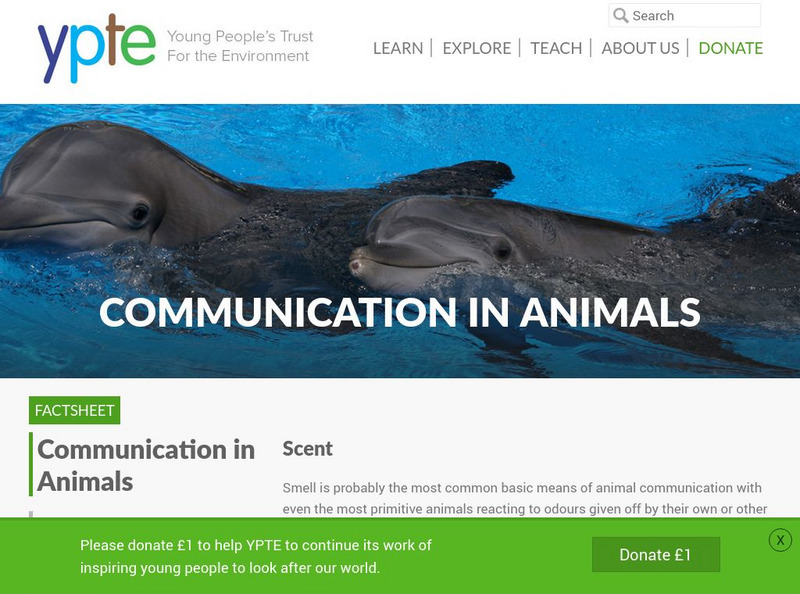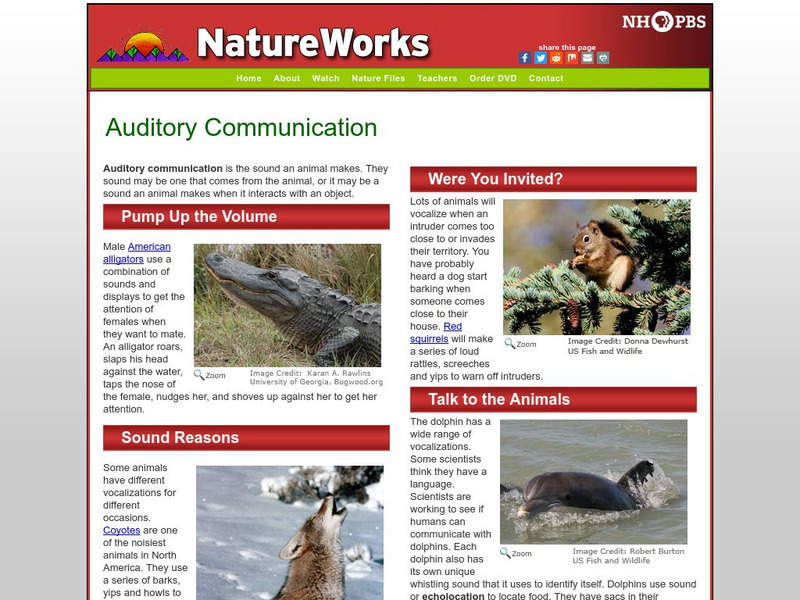Alabama Learning Exchange
Alex: Echolocation Stations: Exploring Sound
During this lesson students will have the opportunity to explore sound. This lesson should be taught during an ongoing unit about whales. Students will navigate different websites to learn more about whales and sound. This lesson is...
Khan Academy
Khan Academy: Animal Communication
Learn how animals communicate with visual, sound, touch, and chemical signals.
CK-12 Foundation
Ck 12: Life Science: 8.7 Communication
Learn about the many forms of animal communication.
Environmental Education for Kids
Eek!: Teacher Resources: "Deer Talk" Activity
In this activity, students will learn to recognize how deer use non-verbal communication for mutual protection and interaction within a group and the importance of this language to the survival of the group.
PBS
Pbs Kids: Sid the Science Kid: Say What?
Animal make sounds to communicate, just like us. Help Sid and Gabriella match sounds that animals make with their pictures.
PBS
Pbs Teachers: Scientific American: Animal Einsteins: If Only They Could Talk!
Investigate the communication skills of animals. Explore their ability to associate abstract concepts or signs with specific objects or actions by solving a puzzle involving decoding symbols.
Other
Young People's Trust for the Environment: Communication in Animals
Facts about the many ways animals communicate. Included is information about scent, sound, sight, and touch.
BBC
Bbc Newsround: Marmoset Monkeys Take Turns to 'Talk'
Article reports on the findings of animal researchers that marmoset monkeys appear to talk in turns. Includes an audio sample of marmoset communication.
PBS
Nh Pbs: Nature Works: Visual Communication
When animals exhibit behaviors or characteristics that can be seen by other animals, the process is called visual communication. This site explores this concept and gives examples.
PBS
Nh Pbs: Nature Works: Auditory Communication
Describing some of the reasons that animals make sounds, this website gives concrete examples that make acoustic (auditory) communication easy to understand.
PBS
Nh Pbs: Nature Works: Tactile Communication
Good overview of how animals communicate through tactile communication. Includes examples of different animals.











